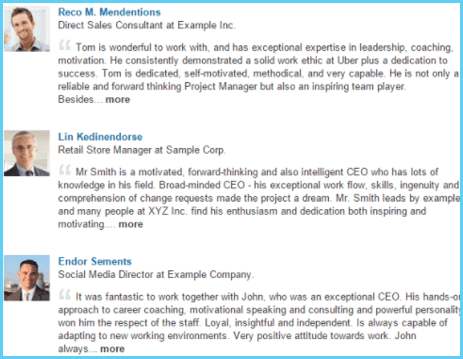A successful resume increases the chances of getting an interview invitation many times over. Especially in the current environment, when the labor market is changing. As a result, competition for good work is growing.
It isn’t easy to meet and communicate with each candidate. That’s why a lot depends on the resume. In the article, we will analyze what typical mistakes are made when writing them and how to correct them to attract the attention of employers.

Table of Contents
Gross errors in compiling a resume
Reduce the chances of getting a job to almost zero. These include:
- Spelling errors, especially in professional terms and job names.
- Concealing some of the essential information (name, surname, age, education, etc.).
- Unsuccessful photo or lack thereof.
- Too small or too long a resume (optimally 2-3 pages A4).
- Lies and inaccuracies that are easy to reveal.
- The absence of an indication of the desired salary (the “agreement” option significantly reduces the responses).
- Salary expectations that do not correspond to the market (if there are doubts, the “cap” can specify the average value, and in the comments to determine below what amount of vacancy will not be considered).
- One summary “for all occasions” (for each post, it is necessary to fill out a separate form).
- A meaningless set of letters in those graphs that the applicant does not want to fill (resumes are formed automatically, so the recruiter sees the whole “abracadabra”).
A fatal mistake in writing a resume is its absence or “emptiness” in it.
There are also less apparent flaws that will be discussed further. Unfortunately, only recruiters know about them. Such errors force HR managers to “discard” applicants’ resumes without considering them as potential candidates.
Lack of description of functionality and critical competencies
You can often see variations in the resume theme: “Performed duties by the job description” (or formal copying of it). Functionality at each significant work should be described as precisely as possible and with all the details. It is unnecessary to make the description too lengthy, but each function is best to ask the question mentally: “What (-them, etc.) Exactly?”
No indication of the company’s specifics and profile
The key task of the cv is to show possible “points of contact.” Unfortunately, many candidates mistakenly consider it unnecessary to explain what the company was engaged in, in which department, in what conditions the applicant worked. But the accountant-materialist at the machine-building plant and catering are different specialists with all the functionality similarities.

For example, the recruiter is tasked with finding a system administrator in a private boarding house. Naturally, the candidates who indicated that they worked in such organizations will be considered first. Even if you choose a Call Center employee without experience in the position, the recruiter will be the interested candidate who has worked in a similar field in other positions.
Lack of tool ownership data
Another example of a typical problem when writing a resume. Tools (special programs, equipment, etc.) are often of great importance. Of course, the days when it was necessary to specify “Owning a PC and office equipment” have passed. But special programs and equipment need to be written about.
There is no need to repeat them in every place of work. It is better at the end of the document to give a list of what the candidate owns. For example: “I work freely in 1C 8.3 ITS, Bitrix, Autocad, do simple tasks in Photoshop.”
Creative CV forms
At one time, it was “fashionable” to be creative in the design of the resume. The candidates thought that in this way, they would attract attention. But in today’s reality, it is a service document, so a non-standard approach will be a mistake in compiling a resume.
The document should be filled out in a typical template. Recruiter is convenient to work with a familiar structure, print, forward, make notes, etc.
Even if you’re planning to send your resume yourself, it’s best to fill out a typical form on a job search site and then download it. You don’t have to put a file in an open search (unless there’s such a desire and task).
No recommendations
Pointing to the recommenders significantly increases the credibility of the candidate.
You don’t need to write the phones of former employers in your resume (job search sites will still hide them as personal data). But showing organizations and positions of people who are ready to give feedback about cooperation with you is a huge plus.

Lack of guidance on the desired form of employment
The modern labor market is multi-face freelancing, removal, combination, outsourcing, full-time, part-time, etc.
Forms acceptable to the applicant should be specified in the cv. Otherwise, the candidate will not pass the filter exposed by the recruiter.
Excessive “generalization” of experience
A typical error that is common when compiling a resume. Instead of specifying specific jobs, the candidate is limited, for example, to the phrase: “20 years of experience as chief accountant at large industrial enterprises in the region.” Recruiter understands that behind this off-call is either an endless change of jobs or banal laziness, preventing you from filling out a resume correctly.
It makes sense to generalize in three cases:
- The place was one, changed only YL (listed through the comma, but indicated as one period in work).
- The candidate dramatically altered the sphere of professional development (then the previous “non-core” experience can be summarized and specified in the comments).
- In one enterprise, a person has come a long way of development (in the headline, it is necessary to determine the highest position, but in the comments to clarify: “Started to work as a turner, then became a machine operator with PU, an adjuster programmer, was transferred to the IT department”).
The unique role of the last place of work
Sometimes a candidate has to work for a while, not by profession, or quickly resign from the organization for objective reasons. Applicants honestly indicate this place of work. But you need to understand that the recruiter initially sees a “rolled up” version of the resume on the site. There is only one (last) organization.
Therefore, it is better to specify the latter profile permanent place of work. But honestly, in the commentary at the end of the summary to point out: “Between January and August 2020 he did not work by profession/went to temporary work.”
No explanation for interruptions
Recruiters are attentive when studying the candidate’s “track record.” Substantial interruptions cause a lot of negative suspicions. Therefore, it is necessary to summarize the summary in the comments to explain this break in such cases. For example: “Between 2019 and 2020, he served in RA.”
Geographical scope is not clear.
An apparent reference to the cv of residence and candidate-acceptable areas of possible employment is essential in large cities. Do not rely only on automatic choice in the job template on the site (most often it indicates the desired “travel time” or mark on the map, but the first – significantly differs in the view of different people, and the second – long loaded and leaves a lot of questions). It is best to write directly in the comments – the place of residence and acceptable areas.
If a candidate considers relocation options, each city should complete its CV.
Geography may not be necessary for remote work (when placing resumes on specialized exchanges for freelancers). But in this case, it is worth specifying the time zone of residence.
Lack of descriptions of achievements
One of the most common mistakes that are made in a resume. In the minds of most candidates, the achievement is something of a government award. Therefore, the applicants are “modestly silent” about many things. But in today’s market without achievements, the employee would hardly have been able to stay on an excellent job for more than three months.
Achievements are not “feats” but descriptions of specific situations indicating the particular way to solve them.
The easiest way to describe achievements is to use the STAR technique.
| C (situation) | Description of working conditions | In the call center of the chain of construction stores |
| T (difficulties) | Task description, problems | I had to master 17 scripts, and customer questions could concern more than 30,000 items. |
| A (activity) | Description of the candidate’s actions | In a week, I learned all the scripts and learned how to apply them. Then, I voluntarily attended training sessions held by suppliers, quickly studied the cards of goods. |
| R (result) | Description of the result | As a result, all the certifications took place the first time. Regularly received thanks from customers. |
Inappropriate humor and creativity
Recruiters appreciate candidates with a sense of humor and creativity. But humorous statements should not replace the contents of those sections of the summary, which was discussed above.
If instead of a specific description of the functionality at each job in the relevant resume graph, the manager of B2B writes, for example: “Sell everything that is sold, and the rest – repaint and still sell,” the recruiter raises a lot of perplexing questions. As a personal motto in the section “Additional information” – it’s okay. As a “substitution” of the information required by the recruiter is a big mistake in the resume.
“Non-business” postal addresses

Even a highly qualified recruiter will have a hard time maintaining a severe attitude towards the candidate for the position of chief accountant, who has pointed in contacts mail in the style of [email protected].
A good tone is to make mail on your domain or choose a business nickname if you use free services, such as a name and a surname.
We’ve looked at the primary and most common mistakes in compiling a resume. Now you know how to make this document right to get the job done.





